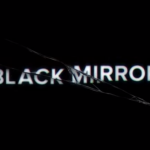Trailer Tuesdays
Hollywood’s Mental Illness Problem
The much-maligned M. Night Shyamalan (say that five times fast) enjoyed a bit of a comeback year before last with The Visit, a flawed but rather entertaining found footage tale with more than one memorable moment. I dare say anyone who’s seen the movie will dry heave at the thought of a soiled diaper. However (spoilers for anyone who hasn’t watched The Visit), instead of the more empathetic treatment of mental illness portrayed in The Sixth Sense, Mr. S relied on an old Hollywood trope of mental patient as monster to jack up the scares. This is a problematic depiction, as it not only regresses from his earlier message of mental patient as victim and maybe even someone with special insight, but reverts to a stigma that sufferers and caregivers alike still fight to overcome. Perhaps the long string of box office failures and unintentionally laughable stories had Mr. S grappling for a sure thing and he settled on a regressive trope that labels the mentally ill as “the other,” and something of which to be afraid.
It doesn’t look as if he’s changed his tune with his latest film, Split, featuring an unsettling James McAvoy, who plays a kidnapper with 24 distinct personalities. Controversy has already sprung up around the film with a Care2 Petition being circulated over the depiction of mental illness, as well as a depiction that reads as transphobic (McAvoy’s character has a female personality that appears in the trailer). This wouldn’t, of course, be the first time a man disguised as a woman was a source of terror – Norman Bates and Buffalo Bill for instance. But Norman Bates and Buffalo Bill were explicitly explained in their respective movies as not being true transgenders. It would seem to me that a similar approach is being tried here: McAvoy is not transgender per se, but rather has a distinct personality – one of many – that identifies as female. Not being a trans woman myself, I don’t automatically assume this depicts a true transgender, but I do concur this is a clumsy attempt. Furthermore, we are all aware that a mangled combination of nature and nurture can create twisted psyches that give us such monsters as Ed Gein and Jeffery Dahmer. But the condition suffered by McAvoy’s character is controversial and since this is Hollywood, it is not likely to be accurately represented in this film. After all: crazy = scary here.
With all that said, I do think that Shyamalan’s stigmatizing depiction is not deliberate so much as trope-heavy, and there are a lot of call-backs to other thrillers like Kiss the Girls and Session 9. The victims are being gathered together for something and they don’t know which version of McAvoy’s character they can trust. What do you think? Will you still see it anyway?





